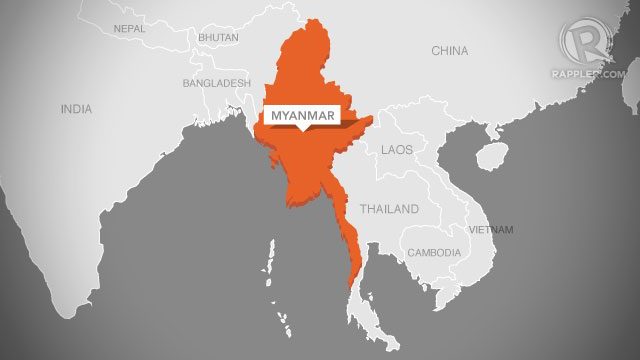SUMMARY
This is AI generated summarization, which may have errors. For context, always refer to the full article.

YANGON, Myanmar – Myanmar’s plans for the future of a western region torn apart by Buddhist-Muslim unrest could result in “permanent segregation” of the two religious groups, a UN expert warned Saturday, July 26.
The United Nations’ human rights envoy to the country, Yanghee Lee, said there was a “deplorable” situation in displacement camps in Rakhine state, where deadly clashes 2 years ago have left some 140,000 homeless, mostly stateless Rohingya Muslims.
Speaking as she wrapped up her first official visit to Myanmar, Lee warned that the government’s plan “for long-term peaceful coexistence may likely result in a permanent segregation of the two communities”.
“As an immediate priority, more must be done to reduce tensions and hostility, and promote reconciliation between the two communities,” she added.
Lee welcomed a move by the authorities this week to invite Doctors Without Borders (MSF) to resume its work in Rakhine, where it provided healthcare to over half a million people.
But she underscored that security for personnel was a priority if the group was to return.
Rakhine is gripped by a severe health crisis nearly five months after the medical aid group was ejected from the region by the government.
It is as yet unclear to what extent MSF, which won the Nobel Peace Prize in 1999 and has operated in Myanmar for 22 years, would be able to return.
Violence between Buddhists and Muslims exploded in Rakhine in 2012, leaving around 200 people dead.
The state has since been almost completely divided on religious grounds, with Muslim communities trapped in camps or isolated communities and subject to a range of restrictions limiting their movements and access to basic services and employment.
Myanmar’s government has long considered the Rohingya to be foreigners, while many citizens see them as illegal immigrants from Bangladesh and view them with hostility.
Attacks against Muslims have spread to other parts of the country, raising concerns that they could destabilise Myanmar’s transition from military rule.
Lee also travelled to Mandalay, Myanmar’s second largest city, where recent religious unrest left two dead.
She warned of a “growing polarisation between Muslim and Buddhist communities” in the country.
“In this regard, I am concerned by the spread of hate speech and incitement to violence, discrimination and hostility in the media and on the Internet, which have fuelled and triggered further violence,” she said.
The envoy, who met opposition leader Aung San Suu Kyi and held meetings with government officials in the capital Naypyidaw during her visit, called for new measures to combat incitement. – Rappler.com
Add a comment
How does this make you feel?
There are no comments yet. Add your comment to start the conversation.